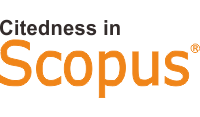From Vision to Practice: Transformational Leadership in Aligning Digital Adaptation with Islamic Values in Indonesian Sharia Hotels
DOI:
https://doi.org/10.46870/milkiyah.v4i2.1538Keywords:
Digital Technology, Islamic Values, Sharia Hotel, Transformational LeadershipAbstract
Sharia-compliant hotels in Indonesia are increasingly challenged to maintain religious integrity while embracing digital transformation. This study investigates how transformational leadership supports the integration of digital technologies in accordance with Islamic principles, recognising that although leadership is not explicitly regulated, the operational guidelines provide a normative framework that leaders are expected to interpret and implement in practice. A qualitative observational approach was employed. Data were collected from nine Sharia hotels in Makassar and Malang. The data were analysed using a six-phase thematic analysis framework, which enabled the systematic identification, coding, and interpretation of patterns across the entire dataset. The findings reveal that transformational leadership, which is characterised by visionary direction, motivational influence, and supportive engagement, is crucial in aligning technological adaptation with Sharia values. Hotels with stronger leadership adherence to Islamic ethics were more adherent in implementing digital tools that uphold modesty, halal standards, and moral conduct. Conversely, hotels lacking in consistent leadership practices showed weaker integration of both digital systems and Sharia compliance. Transformational leadership is essential in harmonising innovation and Islamic values. The findings of this study provide practical implications for Sharia hotel managers and policymakers to integrate transformational leadership with digital strategies so that technological innovation can enhance competitiveness without compromising adherence to Sharia principles.
References
Abdul, A. R., & Khokhar, A. J. (2023). Role of Indonesian Council of Ulama in Halāl certification and product guarantee. Journal of Islamic Thought and Civilization, 13(1), 203-214. https://doi.org/10.32350/jitc.131.14
Adirestuty, F. (2019). Customer-Perceived Value in Creating Customer Satisfaction and Revisit Intention in Sharia Hotels. Journal of Islamic Monetary Economics and Finance, 5(2), 367–368. https://doi.org/10.21098/jimf.v5i2.1067
Ahsan, M. J. (2024). Unlocking sustainable success: exploring the impact of transformational leadership, organizational culture, and CSR performance on financial performance in the Italian manufacturing sector. Social Responsibility Journal, 20(4), 783-803. https://doi.org/10.1108/SRJ-06-2023-0332
Al-Ansi, A., Chua, B.-L., Kim, C.-S., Yoon, H., & Han, H. (2022). Islamophobia: Differences across Western and Eastern community residents toward welcoming Muslim tourists. Journal of Hospitality and Tourism Management, 51, 439–450. https://doi.org/10.1016/j.jhtm.2022.04.018
Al-Jayyousi, O., Tok, E., Saniff, S. M., Wan Hasan, W. N., Janahi, N. A., & Yesuf, A. J. (2022). Re-thinking sustainable development within Islamic worldviews: a systematic literature review. Sustainability, 14(12), 7300. https://doi.org/10.3390/su14127300
Alanazi, M. S. A. ., Meriyati, Hidayat, S. R., & Alyusufi, A. O. A. . (2024). Fatwa, Marketing, and Halal Certification: A Socio-Legal Analysis of The Indonesian Ulama Council Fatwa Number 80 of 2022. International Journal of Law and Society (IJLS), 3(2), 156–172. https://doi.org/10.59683/ijls.v3i2.96
Alam, A., Mellinia, R., Ratnasari, R. T., & Ma’aruf, A. (2023). A systematic review of halal hotels: A word cloud and thematic analysis of articles from the Scopus database. International Journal of Advanced and Applied Sciences, 10(8), 166–175. https://doi.org/10.21833/ijaas.2023.08.019
Alam, A., Mellinia, R., Ratnasari, R. T., & Mawardi, I. (2024). Analysis of Halal Ecotourism Digital Campaigns in a Mosque by an Online Environmental Community. International Journal of Sustainable Development and Planning, 19(7), 2651–2659. https://doi.org/10.18280/ijsdp.190721
Alam, A., Rusiana, A. S., & Rahmawati, E. (2024). Impact of Instagram visual content on eWOM for Sharia hotels in Indonesia. Innovative Marketing, 20(4), 52–61. https://doi.org/10.21511/im.20(4).2024.05
Alam, A., Sukmana, R., Ratnasari, R. T., Arfiatin, I., & Mellinia, R. (2023). Exploring the spiritual and experiential dimensions of Sharia-compliant hotels in Indonesian halal tourism: A netnographic analysis of TripAdvisor reviews. International Journal of Advanced and Applied Sciences, 10, 121–131. https://doi.org/10.21833/ijaas.2023.10.014
Alfiando, D., Elquthb, J. N., & Rachmadewi, I. P. (2023). The influence of order process and transportation on the quality of service: Case study at Sharia-compliant hotel. In B. null, U. M., M. null, M. D., M. Y., & S. B. (Eds.), AIP Conference Proceedings (Vol. 2691). American Institute of Physics Inc. https://doi.org/10.1063/5.0114978
Alhitmi, H. Khalifa., Shah, S. H. A., Kishwer, R., Aman, N., Fahlevi, M., Aljuaid, M., & Heidler, P. (2023). Marketing from leadership to innovation: A mediated moderation model investigating how transformational leadership impacts employees’ innovative behavior. Sustainability, 15(22), 16087. https://doi.org/10.3390/su152216087
Andespa, R., Yeni, Y. H., Fernando, Y., & Sari, D. K. (2024). Sustainable Development of Islamic Banks by Creating Islamic Branding: Challenges, Importance, and Strategies of Islamic Branding. International Journal of Sustainable Development & Planning, 19(2). https://doi.org/10.18280/ijsdp.190221
Avolio, B. J., Waldman, D. A., & Yammarino, F. J. (1991). Leading in the 1990s: The Four I’s of Transformational Leadership. Journal of European Industrial Training, 15(4), 9–16. https://doi.org/10.1108/03090599110143366
Aysan, A. F., & Syarif, M. F. (2025). Shaping the halal tourism industry landscape through NFT and metaverse: new horizons for halal brand and halal booking hotel. Journal of Islamic Marketing, 16(1), 123–140. https://doi.org/10.1108/JIMA-07-2023-0206
Bass, B. M., & Avolio, B. J. (1994). Improving organizational effectiveness through transformational leadership. Sage.
Batubara, C., Rokan, M. K., Abdul Manaf, M. F. Bin, Sukiati, S., & Harahap, I. (2024). Realizing Justice and Maslahah in e-Commerce: Fiqh Muamalah Insights and Challenges in Malaysia and Indonesia. JURIS (Jurnal Ilmiah Syariah), 23(2), 253–267. https://doi.org/10.31958/juris.v23i2.12356
Bekkin, R. I., & Shnyrkova, A. S. (2022). Islamic Tourism in Africa. Vestnik MGIMO-Universiteta, 15(1), 230–248. https://doi.org/10.24833/2071-8160-2022-1-82-230-248
Blanc, T., & Eyre, G. R. (2024). Post-salafism by learning: The indigenization of globalized, exclusivist Salafism in Tunisia and Morocco. Mediterranean Politics, 1–27. https://doi.org/10.1080/13629395.2024.2410120
Braun, V., Clarke, V., Boulton, E., Davey, L., & McEvoy, C. (2021). The online survey as a qualitative research tool. International Journal of Social Research Methodology, 24(6), 641–654.
DSN-MUI. (2016). Fatwa Dewan Syariah Nasional-Majelis Ulama Indonesia NO: 1 08/DSN-MUI/X1/2016 Tentang Pedoman Penyelenggaraan Pariwisata Berdasarkan Prinsip Syariah https://dsnmui.or.id/kategori/fatwa/page/6/
Febriandika, N. R., & Millatina, A. N. (2023). A modeling of repurchase intention in Sharia hotels: An integrated model of price, location, religiosity, trust, and satisfaction. International Journal of Advanced and Applied Sciences, 10(12), 161–171. https://doi.org/10.21833/ijaas.2023.12.018
Hadiasali, A. E., Wijaya, S., Widjaja, D. C., & Jaolis, F. (2022). the Influence of Sharia Hotel Indicators Towards Its Competitive Advantage and Guest Intention To Stay: an Appraisal. Malaysian Journal of Syariah and Law, 10(2), 1–15. https://doi.org/10.33102/mjsl.vol10no2.401
Hamdy, A., & Eid, R. (2024). Muslim-friendly tourist destination image in travel and hospitality industry: Conceptualization and scale development. International Journal of Intercultural Relations, 102(March), 102043. https://doi.org/10.1016/j.ijintrel.2024.102043
Hanafi, S., Nurdin, M. S., Nurkhaerah, S., & Osman, Z. (2024). Developing Halal Tourism Based on Local Wisdom in Religious Area of Sis Aljufri. Indonesian Journal of Halal Research, 6(2), 98–109. https://doi.org/10.15575/ijhar.v6i2.35121
Ichsan, M. (2024). Application of Sharia Hotels to CHSE Protocols and Adherence to Sharia Principles: Case Study of Grand Rohan Jogja Hotel. In Y. X.-S., S. S., D. N., & J. A. (Eds.), Lecture Notes in Networks and Systems: Vol. 1013 LNNS (pp. 493–504). Springer Science and Business Media Deutschland GmbH. https://doi.org/10.1007/978-981-97-3559-4_40
Iskandar, N., Repelita, & Mursal. (2024). Halal Without Label: Implementation of Maqasid Al-Shariah In Community-Based Tourism In Kerinci, Indonesia. Malaysian Journal of Syariah and Law, 12(1), 192–205. https://doi.org/10.33102/mjsl.vol12no1.477
Kusumaningrum, K. W., Saraswati, R., & Wibowo, A. (2022). Green Open Space Development Based on Urban Heat Island Phenomenon in Malang City. IOP Conference Series: Earth and Environmental Science, 950(1). https://doi.org/10.1088/1755-1315/950/1/012066
Manan, A., Wirianto, D., & Fadhilah, M. A. (2023). Halal Tourism: A Proposed Sharia Model for Implementation. Jurnal Ilmiah Peuradeun, 11(1), 81–100. https://doi.org/10.26811/peuradeun.v11i1.784
Mas' ud, I., Fahmi, A. A., & Saputra, A. (2025). Dynamics of Islamic Legal Theory (Ushul al-Fiqh) toward Addressing Challenges of Halal Products in the 21st Century. International Journal of Islamic Thought and Humanities, 4(1), 88-105. https://doi.org/10.54298/ijith.v4i1.403
Munfarida, I., & Arida, V. (2023). An environmental impact assessment of restaurant operation: A case study of RM Restaurant in Garut, Indonesia. In W. null (Ed.), IOP Conference Series: Earth and Environmental Science (Vol. 1201, Issue 1). Institute of Physics. https://doi.org/10.1088/1755-1315/1201/1/012031
Nasir, A., Waridin, W., Iskandar, D. D., Susilowati, I., & Hidayat, A. (2022). Shariah-Based Hospitality, Competitive Advantage and Tourists’ Revisiting Interest on Indonesia Tourism. Journal of Environmental Management and Tourism, 13(8), 2134–2143. https://doi.org/10.14505/jemt.v13.8(64).06
Qizam, I., Berakon, I., & Ali, H. (2025). The role of halal value chain, Sharia financial inclusion, and digital economy in socio-economic transformation: a study of Islamic boarding schools in Indonesia. Journal of Islamic Marketing, 16(3), 810-840. https://doi.org/10.1108/JIMA-03-2024-0108
Osijo, I. U., Murwani, F. D., Djatmika, E. T., & Boonsayan, R. (2024). The Legal Politics of Halal Tourism in Thailand: The Impact of Digital Advertising Interventions on Consumer Intent, Recommendations, and Engagement in the Contemporary Era. MILRev: Metro Islamic Law Review, 3(2), 320-342. https://doi.org/10.32332/milrev.v3i2.9992
Papastathopoulos, A., Koritos, C., & Mertzanis, C. (2021). Effects of faith-based attributes on hotel prices: the case of halal services. International Journal of Contemporary Hospitality Management, 33(8), 2839–2861. https://doi.org/10.1108/IJCHM-01-2021-0044
Philip, J. (2021). Viewing Digital Transformation through the Lens of Transformational Leadership Transformational Leadership. Journal of Organizational Computing and Electronic Commerce, 31(2), 114–129. https://doi.org/10.1080/10919392.2021.1911573
Rachmiatie, A., Rahmafitria, F., Suryadi, K., & Larasati, A. R. (2022). Classification of halal hotels based on industrial perceived value: a study of Indonesia and Thailand. International Journal of Tourism Cities, 8(1), 244–259. https://doi.org/10.1108/IJTC-04-2021-0063
Rizal, Ghofur, R. A., & Utami, P. (2023). The Role of Muslim Generation Community at Zakat Collection on Realizing Sustainable Development Goals (SDGs) in the Era of Digital Society 5.0. Juris: Jurnal Ilmiah Syariah, 22(1), 105–118. https://doi.org/10.31958/juris.v22i1.6562
Roth, S. (2023). Digital transformation of management and organization theories: A research programme. Systems Research and Behavioral Science, 40(3), 451-459. https://doi.org/10.1002/sres.2882
Saladin, A. R., Nawawi, Z. M., & Silalahi, P. R. (2024). Analysis of Sharia Hotel Standardization According to the Indonesian Ulema Council (MUI) Fatwa at Hotel Arabia Style. Jurnal Ilmiah Mizani, 11(2), 314–325. https://doi.org/10.29300/mzn.v11i2.4890
Samori, Z., Salleh, N. Z. M., & Khalid, M. M. (2016). Current trends on Halal tourism: Cases on selected Asian countries. Tourism Management Perspectives, 19, 131–136. https://doi.org/10.1016/j.tmp.2015.12.011
Sulaiman, Z. A., Iranmanesh, M., Foroughi, B., & Rosly, O. (2022). The impacts of Shariah-compliant hotel attributes on Muslim travellers revisit intention: religiosity as a moderator. Journal of Islamic Marketing, 13(10), 2108–2125. https://doi.org/10.1108/JIMA-06-2020-0179
Wimmel, R. (2024). Caravanserais and Khans as Commercial Architecture: Accommodating Long-Distance Travelers in West Asia. In The Routledge Handbook of Global Islam and Consumer Culture (pp. 108–122). Taylor and Francis. https://doi.org/10.4324/9781003152712-10
Windasari, N. A., Azhari, N. P. D. A., & Putra, I. F. (2024). Assessing consumer preferences on halal service: the emergence of Sharia hospitals for Muslim consumer. Journal of Islamic Marketing, 15(1), 22–41. https://doi.org/10.1108/JIMA-07-2022-0192
Downloads
Published
How to Cite
Issue
Section
License
Copyright (c) 2025 Andi Muhammad Rivai, Muh. Rizal Suyuti, Aris Baharuddin, Rudi Salam, Afzal Sayed Munna

This work is licensed under a Creative Commons Attribution-ShareAlike 4.0 International License.

















